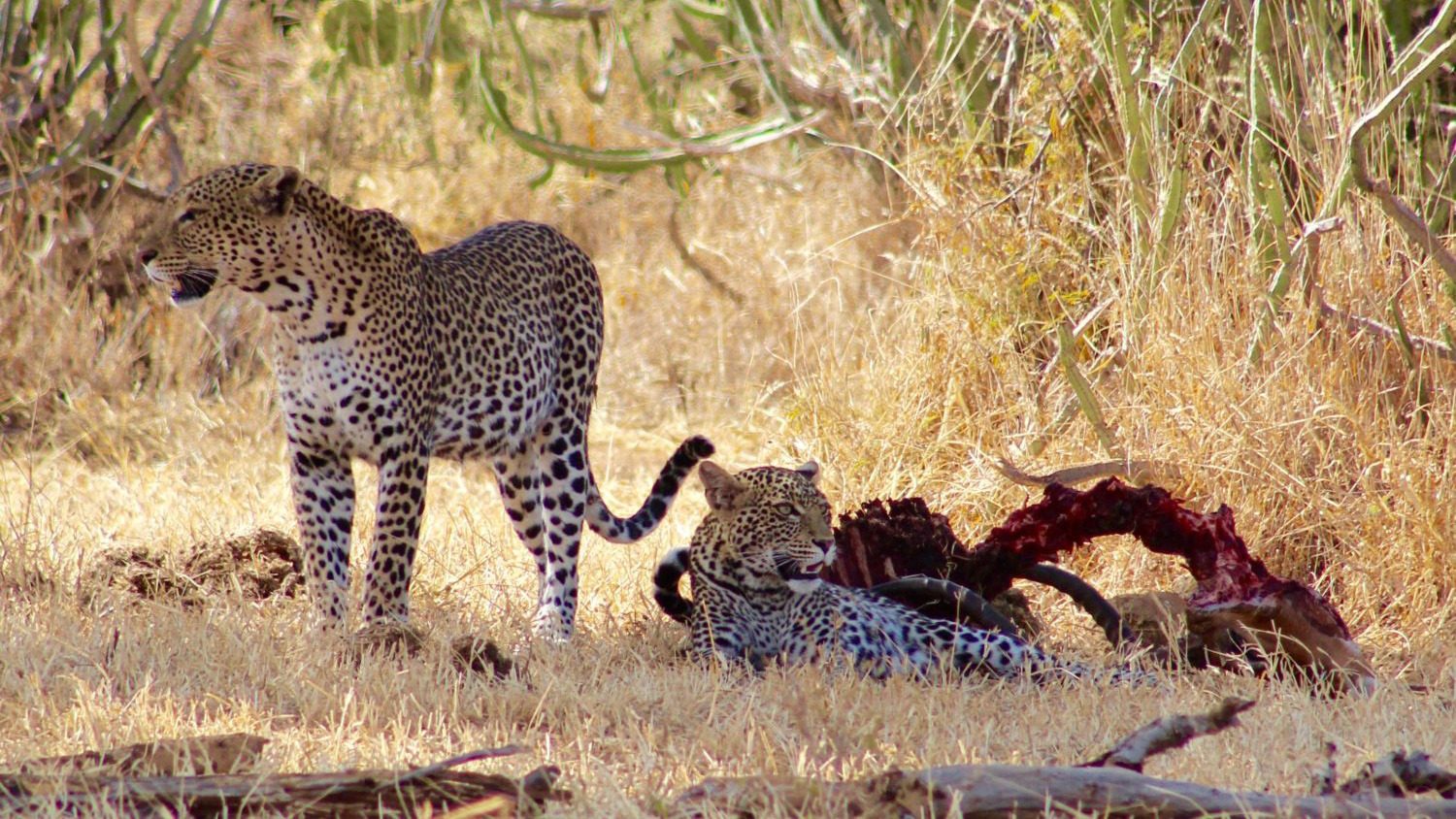
Although leopard populations are extremely successful in protected areas, the International Union for Conservation of Nature (IUCN) classifies them as a near threatened species. When leopards kill livestock, they risk being killed by ranchers. They also compete with humans for food and are hunted by poachers for their distinctive coats as well as for traditional medicine and religious purposes.
Leopards are believed to be the most abundant large cats in Africa, though they’re extremely difficult to count. The most commonly cited statistic—700,000—is now viewed as flawed. We simply don’t know how many leopards live on the continent because they’re so hard to find. The number of leopards in an area depends on the availability of prey. In good habitat in Kenya, scientists have recorded densities of 17 to 36 per 100 square miles (6.5 to 14.5 per 100 km2).
On the Loisaba Conservancy and nearby Mpala Research Centre, researcher Dr. Nicholas Pilfold from the Institute for Conservation Research at San Diego Zoo Global and his talented assistant Ambrose Lotualai are on a mission to help establish a sustainable leopard population in the area.
Watch the video to find out more
Dr. Nicholas Pilfold serves San Diego Zoo Global as a Scientist in Population Sustainability. Nicholas is a large carnivore biologist focused mainly on bear species, but his research also extends to large cats.
Nicholas leads and collaborates on projects for four large carnivore species: polar bears, African leopards, Andean bears, and giant pandas. Nicholas’ research is focused on several themes within spatial and population ecology.
Nicholas earned his bachelor’s degree in Life Sciences from the University of British Columbia and his doctorate in Ecology at the University of Alberta. His interest in large carnivore research was initially spurred while volunteering on small wildlife reserves in South Africa. Prior to joining San Diego Zoo Global, Nicholas worked with researchers at the University of Alberta and Environment and Climate Change Canada.

